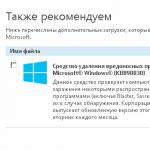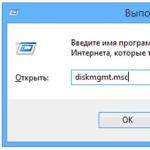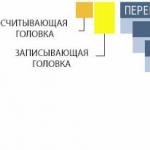The German labor week, like the Russian one, starts on Monday.
der Montag (Mo.) - Monday
der Dienstag (Di.) - Tuesday
der Mittwoch (Mi.) - Wednesday
der Donnerstag (Do.) - Thursday
der Freitag (Fr.) - Friday
der Sonnabend, Samstag (Sa.) - Saturday
der Sonnabend (So.) - Sunday
To indicate events that occur on a particular day of the week, use the preposition am (an + dem):
am Dienstag, am Mittwoch … usw.- on Tuesday, Wednesday, etc.
montags, dienstags ... usw. – (usually) on Mondays, Tuesdays, etc.
Tag und Nacht - day
der Tag (-es, -e) - day
die Nacht (=, Nächte) - night
der Morgen (-s, =) - morning
der Vormittag (-s, -e) - 1st half of the day
der Mittag - lunch
der Nachmittag - 2nd half of the day
der Abend (-s, -e) - evening
am Tag, am Abend, am Morgen usw. - usually in the mornings, in the evenings, etc.
Exception: in der Nacht - at night
To more accurately indicate the time of day, adverbs of time are used:
morgens - in the morning, in the morning
mittags - at lunchtime, in the afternoon
nachts - at night, at night
dienstags - Tuesday, Tuesdays, etc.
It is now 4 pm (not morning). – Es ist 4 Uhr nachmittags.
After lunch (every day) I meet with friends. - Nachmittags treffe ich mich mit meinen Freunden.
My favorite series is shown in the evenings at 6 o'clock. – Meine Lieblingsserie läuft abends um 6 Uhr.
The organic food shop is open Tuesdays and Fridays until 6pm. – Der Bioladen hat dienstags und freitags bis 6 Uhr abends auf.
wann? - when?
vorgesttern ← gestern ← heute → morgen → übermorgen
the day before yesterday ← yesterday ← today → tomorrow → the day after tomorrow
gestern früh/morgen - yesterday morning
gesttern vormittag - before noon yesterday
gestern mittag - yesterday afternoon (at lunchtime)
gestern nachmittag - yesterday afternoon
gestern abend - last night
gestern nacht - last night
similarly: instead of gesttern, heute, morgen, etc. are used.
Monate - months
der Monat (-s, -e) – month
der Januar, der Februar, der März, der April, der Mai, der Juni (Juno*), der Juli (Julei*), der Augúst, der September, der Oktober, der November, der Dezember
* Usually used in telephone conversations to avoid misunderstandings.
der Anfang - the beginning
die Mitte - the middle
das Ende - the end
im Januar, im April usw. - in January, in April, etc.
Anfang Dezember - early December
Mitte August - in mid-August
Ende Mai - at the end of May
Uhrzeit - time
The impersonal pronoun is used to talk about the exact time. es, replacing the subject.
Es ist 3 Uhr.
It's 3 o'clock now.
In Moscow ist es jetzt 5 Uhr nachmittags, in Deutschland ist es erst 3 Uhr.
Wie spat ist es? - What time is it now?
Es ist 8 Uhr. (or: Es ist punkt 8). - 8 ocloc'k.
die Uhr (=, -en) - 1) clock (mechanism); 2) hour (point in time)
die Stunde (=, -n) - 1) hour (length of time); 2) lesson
die Minute (=, -n) – minute
die Sekunde (=, -n) - second
Die Uhr geht richtig. - The clock is correct.
… geht vor. - ... in a hurry.
… geht nach. - … behind.
Do not confuse German nouns Uhr and Stunde, which are translated into Russian in the same way as "hour". Compare:
Es ist 3 Uhr. Ich habe noch Zeit.
Now 3
hours. I still have time.
Ich habe noch 2
stunden, dann muss ich gehen.
I still have two hours then I have to go.
Die Uhr also used in the meaning "clock":
An der Wand hängt eine Kuckucks uhr.
A cuckoo clock hangs on the wall.
Ich habe eine neue Armband uhr.
I have a new wrist watch.
Es ist 4 Uhr (Es ist punkt 4) Es ist halb 5 (Es ist 4.30 Uhr) Es ist Viertel 11. Es ist 15 Minuten nach 10 (Es ist 10.15 Uhr) Es ist 5 Minuten nach 4 (colloquial). Es ist 16.05 Uhr (official version) Es ist 5 Minuten vor 4. Es ist 15.55 Uhr Es ist 5 Minuten vor halb 4 Es ist 15.25 Uhr Es ist Dreiviertel zwei. Es ist Viertel vor zwei (Es ist 13.45 Uhr) Es ist 5 Minuten nach halb 4. Es ist 15.35 Uhr
Wann steht Familie Müller auf?
Familie Müllersteht um 5 Uhr auf.
Wann kocht die Familie Kartoffeln fur Schweine?
Kartoffeln fur Schweine kocht sie um 7 Uhr.
Zeitvergleichstabelle fur europäische Lander
(Time comparison table for European countries)
Westeuropäische Zeit - WEZ = UTC (Universal Time Coordinated) - Western European Time Mitteleuropäische Zeit - MEZ - Central European Time (UTC + 1) Osteuropäische Zeit - OEZ - Eastern European Time (UTC + 2) Moskauer Zeit - MZ - Moscow Time (UTC + 3)WEZ: Portugal, Grossbritannien
MEZ: Deutschland, Norwegen, Belgien, Frankreich, Italien, Jugoslawien, Niederlande, Polen, Schweden, Tschechei, Slowakei, Ungarn, Österreich, Dänemark, Luxemburg, Spanien
OEZ: Bulgarien, Finnland, Rumänien, Türkei, Ukraine, Griechenland
Exercise / ÜBUNGEN
1. Choose the right phrases.
früh morgens, spät abends, gegen Mittag, am frühen Nachmittag, am späten Nachmittag, früh abends, gegen Abend, am frühen Vormittag
For example: 11.52. gegen Mittag
1) 17.50 Uhr ——————————
2) 7.30 Uhr———————————
3) 6.24 Uhr——————————
4) 18.15 Uhr——————————-
5) 13.38 Uhr ——————————
6) 23.35 Uhr ——————————
7) 18.20 Uhr ——————————
8) 11.40 Uhr ——————————
9) 10.05 Uhr ——————————
2. Calculate the day if counting from Sunday.
For example: Heute ist Sonntag. Gestern Mittag war (ist) Samstag Mittag.
1. Vorgestern Mittag
2. Übermorgen Abend
3. Morgen Abend
4. Vor vier Tagen
5. Morgen Nachmittag
6. Gestern morgen
7. In vier Tagen
3. An welchem Wochentag haben deine Freunde dieses Jahr Geburtstag? und deine Family?
beispiel: Tanja hat am (an einem) Samstag Geburtstag.
Alexey hat …
How do they talk about time in Germany, what phrases do they use? We will analyze this in this article. So we have today German language theme Time!
Naturally, you need to know the German words "minute, hour, second." Note that these words will be used with the article die:
- The time will be in German die Zeit.
- The hour is in German die Stunde
- Minute in German die Minute
- Second in German die Sekunde
First, let's look at and learn phrases related to time:
- die Zeit haben- have time
- die Zeit Verlieren- Waste time
- keine Zeit haben- don't have time
- viel/wenig Zeit haben- have a lot / little time
How do you say "how long does it take"?
- dauern- last
- Wie lange dauert das? — how much/how long does it take?
- Das dauert eine Stunde lang it lasts one hour.
- Das dauert Stunden lang it lasts for hours.
- Das dauert eine Sekunde lang it lasts one second.
- Das dauert eine Minute(lang can be omitted) - this lasts one minute.
- Das dauert funf Minuten(lang) - it lasts one 5 minutes.
What do the Germans say when a person is in a hurry or late:
- in Eile sein— hurry / be in a hurry
- zu spat sein - be late
- beeil dich! — hurry!
- Schneller! | Schnell! — Faster!
- Nun aber dally! — And now quickly! Live!
- Nun aber zack, zack! — And now one or two! Live! Lets go faster!
Answer the question "how much time do you have?":
- Wieviel Zeit hast du? — How much time do you have?
- Ich habe keine Zeit. — I have no time.
- Ich habe viel Zeit. — I have a lot of time.
- Ich habe wenig Zeit. — I do not have much time.
- Ich habe zwei Stunden. — I have 2 hours.
German language Topic Time: expressions and sayings about time
- Eile mit Weile! — Hurry up slowly! The quieter you go, the further you'll get.
- Gut Ding will Weile haben! — Good work takes time.
- Was du heute kannst besorgen, das verschiebe nicht auf morgen. — What you can do today, do not put off until tomorrow.
- Verschoben ist nicht aufgehoben. — Postponed - not forgotten.
- Zeit ist Geld! — Time is money!
"What time is it now?" or "What time is it" in German:
- Wie spat ist es? — What time is it now? What time is it?
- Wieviel Uhr ist es? — What time is it now? How much time?
- -Es ist 17.00 Uhr. — 17.00 hours.
And to ask "what time / what time?" need to say:
- Um wieviel Uhr? — What time? At what time?
- We answer this:
Um zwei Uhr (Uhr can be omitted ). — At 2 o'clock. - Um fünf vor zwölf.(11.55/23.55). — At 11.55/23.55
To mark the time exists two ways: official and unofficial. Officially, the time is indicated in accordance with the 24-hour dial:
- Es ist neun Uhr dreißig (9.30) — Time 9.30 a.m.
- Es ist vierzehn Uhr fünfzehn (14.15) — Time 2.15 p.m.
- Es ist einundzwanzig Uhr vierzig (21.40) — Time 21.40 h.
In informal communication 12 hour cycle is used. Incidentally, in an informal conversational communication for hours the word Uhr and for minutes the word Minuten are rarely added; most often omitted in speech:
- Es ist zwei Uhr (2.00) / Es ist zwei.(2.00) — Time 2 hours.
Es ist zwanzig vor acht (7.40). — Time 7.40
Also, to make it clearer what time of day is spoken in informal communication, it is possible add these definitions:
- morgens- in the morning
- vormittags- in the morning / before lunch
- mittags- noon / lunch
- nachmittags- afternoon/afternoon
- abends- in the evening
- nachts- at night
- Example: Es ist zwanzig vor acht morgens. — 7.40 am.
What is vor, nach, halb, Viertel when indicating time?
 Viertel
- quarter, fourth part. We use Viertel as a designation for 15 minutes.
Viertel
- quarter, fourth part. We use Viertel as a designation for 15 minutes.
Pretext vor we use if we want to say how many minutes are left until some hour. And vor we use after breaking the clock half an hour, when the hand is on the left side of the dial! For instance:
Es ist Viertel vor vier (15.45)- Literally translated, then "now 15 minutes to (vor) four o'clock", i.e. 15 minutes left until 4pm.
Preposition nach we use if we want to say how many minutes have passed since a certain hour. But at the same time, we use nach before breaking through on the clock for half an hour (30 minutes), when the arrow is on the right side of the dial!
- Es ist Viertel nach vier (16.15) — 15 minutes after four or 4:15 p.m.
- Es ist fünfundzwanzig nach vier (16.25) — 25 minutes after four or 4:25 p.m.
Well, the last moment: halb - half . We use this word when we want to say that it is already half an hour (17.30):
Es ist halb zehn abends (21.30)- Half past nine or nine thirty in the evening.
Es ist halb sechs (17.30)- Half past five.
Have a great mood and successful studies 😉 Subscribe, share on social networks and write comments =)
A device for measuring the current time (in seconds, minutes, hours). Ancient man was guided in time by the Sun. Naturally, the first hours were sunny. In the simplest sundial, time was measured by the position of the shadow from the rod ... Encyclopedia of technology
CLOCK- CLOCK. The simplest and oldest clock is the sundial. They were a tall pillar (even an obelisk) placed vertically. From the shadow of the obelisk (length and position) and the dial drawn on the ground, the time of day was determined. For changing… … The Concise Encyclopedia of the Household
clock- noun, pl., use very often Morphology: pl. what? hours, (no) what? hours for what? hours, (see) what? watch what? hours, what? about watches 1. A watch is a device, usually round or square, with which you determine the exact ... Dictionary of Dmitriev
clock- clock. Among household items, watches are distinguished by a particularly large variety of shapes, appearance, sizes, and finishing materials used. The most common table clocks are alarm clocks, in which, in addition to the main clock ... ... Encyclopedia "Housing"
clock- ov; pl. A device, a mechanism for determining the time within a day. Gold watches. Pocket watches. Wall watches. Ch. struck midnight. Clock face. Ch. run (hurry). ◊ Hourglass. The device for counting ... ... encyclopedic Dictionary
Clock- Clock. Electronic (men's and women's) and electronic-mechanical watches. CLOCK, a device for measuring the current time. To read time in hours, constant periodic processes are used: the rotation of the Earth (sundial), fluctuations ... ... Illustrated Encyclopedic Dictionary
CLOCK- a device for counting time. The clock uses constant periodic processes: the rotation of the Earth (sundial), pendulum oscillations (mechanical and electromagnetic clocks), tuning forks (tuning fork clocks), quartz plates (quartz clocks), ... ... Big Encyclopedic Dictionary
clock- the first, third, sixth and ninth hours, from sunrise, at which the ancient Christians converged for prayer; the church combined the psalms, verses and prayers of the first hour from matins, the third and sixth with the liturgy, the ninth with the evening (Dal, hour) See ... ... Synonym dictionary
CLOCK- CLOCK, a device for measuring time. In the oldest structures for counting time, there were no moving parts. An example is the Neolithic stone pillars and the sundial of the ancient Egyptians. The Egyptians also used water clocks, ... ... Scientific and technical encyclopedic dictionary
CLOCK- We are crucified on the clock face. Stanisław Jerzy Lec Clock hands are two hands that take our time. Grzegorz Stanczyk Listening to the ticking of the clock, we notice that time is ahead of us. Ramon Gomez de la Serna Broken clock shows twice a day ... ... Consolidated encyclopedia of aphorisms
Books
- Clock, Agatha Christie. It happens that the famous detective has to investigate a case that has already been 'solved'. This is exactly what happened with the murder of an elderly woman in the novel `Miss McGinty is dead`, and Poirot has to ...
German text level A1 - Mein Wochenende.
Mein Wochenende. Am Samstag waren wir im Wald. Wir sind mit dem Fahrrad gefahren und dann sind wir ins Schwimmbad gegangen. Im Schwimmbad haben wir viel gebaden. Nach dem Schwimmbad haben wir den Orangensaft getrunken. Am Abend hat meine Frau einen Kuchengebacken. Wir haben den Kuchen gegessen. Mein Sohn liebt den Kuchen. Nach dem Abendessen haben wir mit dem Ball gespielt.
Das ist mein Wochenende!
My weekend. On Saturday we were in the forest. We rode bicycles and then we went to the pool. We swam a lot in the pool. After the pool we drank orange juice. In the evening my wife baked a cake. We ate it. My son loves pie very much. After dinner we played ball. This is my weekend!
German language test level A1 Lesson 1 - 5
Choose a test and find out your result:
Tests consist of 10 questions on each topic. After passing the test, you will immediately know your result. Correct answers will be marked green tick, and wrong answers will be marked red cross. This will help you consolidate the material and practice. Good luck to you.
Ein junger Hase - (One) young hare
The text will be written in German with a parallel LITERAL translation into Russian.
Ein kleines Tier wohnt in einem märchenhaften Wald.
Das Tier ist ein junger Hase.
Der liebt oft in einer kleinen und schönen Stadt spazierengehen.
Dieser Hase heißt Doni und er ist sehr nett.
Seine Frau ist auch sehr schön und jung.
Aber in diem Märchen sprechen wir über den Hase Doni.
Doni hat ein altes, schönes und gemütliches Häuschen. Auch fährt er gern mit seinem Fahrradum den Wald herum. Am Wochenende möchte er in diese Stadt fahren, um ein schönes und kleines Fahrrad für sich zu kaufen.
Er hat schon ein altes Fahrrad, trotzdem will er ein neues.
Normaleweise fährt er durch den Wald oder den Park.
Dieser Park liegt entlang den Wald.
Neben dem Parkgibt es einen großen Markt.
Auf diesem Markt kauft er viele Möhren für seine kleine Familie.
Wahrscheinlich geht er auch am Samstag auf diesen Markt zu Fuß oder mit seinem alten Fahrrad.
Aber muss er zuerst in d…
01/08/2015 THURSDAY 01:52
GERMAN LANGUAGE FOR BEGINNERS. LEVEL A1
Wortschatz zum Thema (words on the topic):
die Uhr,- en - hours, hour
die Uhrzeit - time (behind the clock)
die Zeit,- en - time (in general)
die Stunde, - n - hour
die Minute,- n - minute
die Sekunde,- n - second
die Armbanduhr,- - wrist watch
die Wecker,- - alarm clock
heute - today
morgen - tomorrow
gestern - yesterday
jetzt - now
der Morgen - morning
morgens - in the morning
der Mittag, - e - noon, lunch
vormittags - before lunch, in the morning
mittags - in the afternoon, at lunchtime
nachmittags - in the afternoon
der Abend, - e - evening
abends - in the evening
die Nacht,-´´ e - night
nachts - at night
half - half
das Viertel, - - a quarter
Note! Uhr is used to indicate the time (Es ist 10 Uhr - It is now 10 o'clock), Stunde - to indicate the gap (Wir fahren 3 Stunden - We are driving for 3 hours).

To find out the time, ask:
Wie spat ist es? - What time is it now?
Wann? - When?
Um wie viel Uhr? - What time?
To denote time, we use:
8.00 a.m. Uhr
8.05 - fünf Minuten nach acht
8.15 - Viertel nach acht
8.25 - funf vor halb neun
8.30 - halb neun
8.35-fünf nach halb neun
8.45 - Viertel vor neun
8.55 - fünf Minuten vor neun
um neun Uhr - at nine o'clock
15.00 - fünfzehn Uhr, drei Uhr nachmittags
7.00 - sieben Uhr morgens, sieben Uhr abends
Exercises:
1. What time is it?
10.15 - Viertel nach 10
7.30
12.45
6.25
8.10
22.55
11.40
5.35
16.20
2. Translate the sentences:
We have breakfast at half past seven.
The flight lasts 3 hours.
What time is it? Ten hours twenty-five minutes.
When does dinner start? Dinner starts at a quarter to seven.
Are you going to the cinema today? Yes, I go to the cinema in the afternoon.
He walks home for an hour.
What time is it now? Nine pm.
Keys to lesson A1-14:
1. Translate the sentences:
Der Teller steht auf dem Tisch.
Wo ist die Tasse? Die Tasse ist neben dem Fenster auf dem Fensterbrett.
Tomaten, Gurken und Wurst sind im Kühlschrank.
Die Schwester hat 2 Äpfel, 3 Birnen and 10 Pflaumen.
Der Vater stellt den Topf auf den Herd.
Was isst du gern? Ich esse Nudeln mit Soße und Gemüsesalat gern.
2. Distribute the words into semantic groups:
Gebäck: das Baguette, das Brötchen, das Croissant, das Vollkornbrot
Mahlzeiten: das Mittagessen, das Frühstück, das Abendessen
Geschirr: die Tasse, der Topf, die Pfanne, die Schüssel
Cutlery: die Gabel, das Messer, der Teelöffel
Obst: die Birne, die Himbeere, die Pflaume, die Banane
Gemuse: die Tomate, die Gurke, der Blumenkohl
Getränke: der Wein, das Bier, das Mineralwasser
3. Fill in the blanks:
2. Fruhstuck
3. Coffee
4. Kakao
5.vormittags
6. Mittagessen
7. Gemuse
8. Nudeln
9. Kantine
10. Nachmittag
11. Obst
12.Eis
13. Abendessen
14. Wurst
15. Suppe




